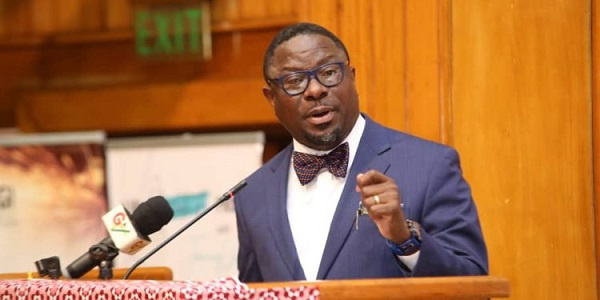President of the Association of Ghana Industries, Dr. Humphrey Ayim-Darke, has said in an attempt to boost industrialisation and local productive capacity, government must move from pre-production taxation to post-production taxation.
He said the move will not only enable expected growth in the production sector but also ensure that government generates more revenue through production taxation where there is value addition.
“The budget as it stands, I believe, has given us direction. As we seek to attain capacity, what is the relation between aggressive revenue mobilisation and building capacity? We at AGI believe that it is a chicken and egg situation, and there must be pain before gain when we get to this stage.
“We believe to promote the industrialisation agenda that will go all the way back to correct the wrongs and informalities in the SMEs and create a saving culture and related matter, you might need to move from pre-production taxation to post-production taxation,” he said, speaking at the KPMG 2023 post-budget forum in Accra.
He explained that given the fact that most of the raw materials are not found in this country, the removal of pre-production taxes will give some leverage to the production sector.
“In the pre-production stage, currently you might not get all the raw materials you need in Ghana so they get imported; and one might have to pay all levies on the raw materials. However, if you excuse us from that tax and we pay it at the post-production after value-added stage, the revenue there will be higher than the primary stage.
“But government must deploy IT systems that can track everybody in the value chain who benefitted from the pre-production taxation,” he said.
Dr. Humphrey Ayim-Darke holds that government must work in parallel with the production sector, as its role and contribution to the country’s GDP will remain crucial even after the IMF programme and intervention.
“You might deliberately and consciously work with the productive sector so that you do not kill the sector that will lay eggs beyond the three-year IMF strategies. Also, working in parallel and reducing a bit of the pre-production taxation is key.
“If we do not consciously industrialise to pick up the structures of this economy and improve on them, the status quo will be the same,” he said.
For her part, Senior Lecturer at the Department of Economics-University of Ghana, Dr. Priscilla Twumasi Baffour, reiterated that there is a need to tackle the structural issues and challenges of local production which need to be catered for to be able to take up import substitution industrialisation.
She added that while many have touted how the IMF programme will help put the economy on a good pedestal, the country must own its game after the programme to prevent the cyclical pattern of bouncing back to challenging times.
“Hopefully, once we go under this programme and come out of it, we’ll be able to manage ourselves well so that we don’t repeat this cyclical pattern of every time the country does well under a fund-assisted programme, the moment we come out you find we are suffering because we do not tackle the structural issues. The challenges of local production needs to be catered for to be able to take up import substitution industrialisation,” she said.










